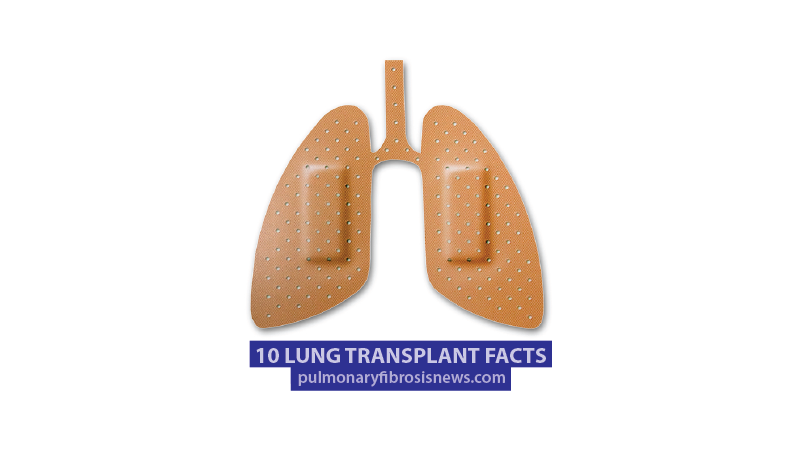10 Lung Transplant Facts
Written by |

Many different treatment options exist for patients with pulmonary fibrosis, but the treatment of last resort is lung transplant. Typically, lung transplants are suggested for patients whose lung disease is so progressed that they will not likely live another year or two. Lung transplants can dramatically improve the quality of life for people with acute pulmonary diseases by offering patients a better short-term prognosis. Here are some important facts about lung transplants:

1. 78% of lung transplant patients will survive beyond one year of transplant.
2. 63% of lung transplant patients will live for three years beyond transplant.
Read how lung transplants at Loyola Center gave two pulmonary fibrosis patients new hope.

3. The majority of lung transplants are performed on people between 18 and 65 years old.
4. About half of patients on the lung transplant list receive new lungs with a year.
Read about six pulmonary fibrosis complications here.

5. Most people have a double lung transplant rather than a single lung transplant.
6. Approximately 1,200 lung transplants were carried out in the U.S. in 2010.

7. Potential candidates for lung transplants will need to go through extensive screening to ensure they are physically fit enough for the operation.
8. Many lung transplant patients report immediate improvements after recovery from surgery.
Read how lung transplants at Loyola Center gave two pulmonary fibrosis patients new hope.

9. Transplant surgery takes between four and 10 hours.
10. Following a successful lung transplant, 80% of patients say they can resume physical activities.
Read about six pulmonary fibrosis complications here.
Sources:
The Lung Institute, Lungs transplantation Foundation, National Heart, Lung and Blood Institute, GBHealthwatch .com, WebMD
Pulmonary Fibrosis News is strictly a news and information website about the disease. It does not provide medical advice, diagnosis or treatment. This content is not intended to be a substitute for professional medical advice, diagnosis, or treatment. Always seek the advice of your physician or another qualified health provider with any questions you may have regarding a medical condition. Never disregard professional medical advice or delay in seeking it because of something you have read on this website.



